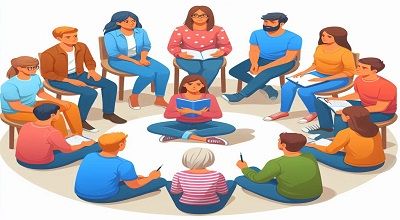Guiding Students to Be Independent Learners
Guiding students to become independent learners is a crucial aspect of education, as it equips them with the skills and mindset necessary for lifelong learning and success. Here are some strategies and tips for helping students become independent learners:
Foster a Growth Mindset:
- Encourage a growth mindset by emphasizing that intelligence and abilities can be developed through effort and learning.
- Praise effort, persistence, and the process of learning rather than just outcomes.
Set Clear Learning Goals:
- Help students set specific, achievable learning goals for themselves.
- Break larger goals into smaller, manageable tasks.
Teach Self-Regulation:
- Guide students in developing effective study habits and time management skills.
- Encourage them to create schedules and to-do lists to prioritize tasks.
Encourage Critical Thinking:
- Promote critical thinking by asking open-ended questions and engaging in discussions that require students to think deeply.
- Encourage them to evaluate information and form their own opinions.
Emphasize Problem-Solving:
- Encourage students to tackle problems independently and seek solutions before asking for help.
- Teach them problem-solving strategies and how to access resources.
Provide Autonomy:
- Give students some control over their learning, such as allowing them to choose topics for projects or research.
- Allow flexibility in how assignments are completed, when possible.
Use Active Learning:
- Incorporate hands-on, experiential activities that require students to actively engage with the material.
- Encourage self-discovery through experiments, projects, and real-world applications.
Foster Information Literacy:
- Teach students how to search for and evaluate information from various sources, emphasizing the importance of credible sources.
- Promote digital literacy and ethical use of technology.
Encourage Self-Assessment:
- Teach students to assess their own work and set their own standards for quality.
- Provide rubrics or criteria to help them self-assess and improve.
Offer Constructive Feedback:
- Provide feedback that is specific, actionable, and focused on improvement.
- Encourage reflection on feedback and revisions to work.
Create a Supportive Environment:
- Develop a classroom or learning environment where students feel safe to take risks, make mistakes, and ask questions.
- Build a sense of community and collaboration.
Model Independent Learning:
- Be a role model by demonstrating your own curiosity, love of learning, and willingness to seek answers independently.
- Share your experiences of overcoming challenges and learning from failures.
Use Technology Wisely:
- Utilize educational technology and online resources to enhance learning.
- Teach students how to use technology as a tool for research and self-directed learning.
Encourage Reflection
- Have students reflect on their learning experiences, what worked well, and what could be improved.
- Encourage journaling or portfolio development.
Be Patient:
- Recognize that becoming an independent learner is a process that takes time and practice.
- Provide support and guidance as needed, but gradually reduce scaffolding as students become more self-reliant.
Note:
By implementing these strategies and creating a supportive learning environment, educators can help students develop the skills, habits, and mindset necessary for becoming independent learners, which will benefit them throughout their academic and personal lives.
